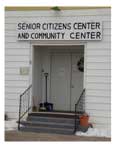Why This Is Important

The federal government recommends that government entities and the private sector plan with the assumption that up to 40 percent of their staff may be absent for periods of about two weeks at the height of a pandemic wave. This includes any agency that provides service to elders and special populations, such as home health care, Hospice Care and Meals on Wheels.
If you have a family member that needs assistance, work with them now to ensure they will be taken care of during a pandemic.
Scope

The following guidelines are intended for elders and special population individuals who live in their own homes. Care facilities are responsible for their own emergency plans. If you have a family member in a care facility, make sure that plans have been made and necessary supplies have ALREADY been STOCKED. Ask to see those plans. Is the facility prepared to deal with power outages, reduced staff, and interrupted supply lines for food and medical supplies? Consider options if preparation is inadequate.
Elderly and individuals in special populations each have their own unique needs. Use the following guidelines now to ensure that you have what you will need when the pandemic occurs.
Guidelines
1. If you use local services (for example, home health), find out if pandemic flu has been incorporated into their emergency plans. The Centers for Disease Control has an
excellent checklist for home health 2. Begin stocking three months of food, water (or purification capability), medications and other basic supplies where your loved one will be staying during a pandemic. Go to the homepage of this site for information on how to accomplish this. If a person requires specialized care (oxygen support or home dialysis or home breathing treatments, for instance), plan ahead for continuity of care by stockpiling necessary supplies and arranging for backup power in case the power is out for extended periods.
3. Develop your own
personal emergency plan. A personal emergency plan helps households organize and prepare for an emergency.
4. Identify family members, friends and neighbors who may be able to provide practical assistance under emergency conditions.
Current Information is Critical
 1.
1. Connect locally.
- See your medical practitioner. Discuss getting extra medications or alternative medications.
- Connect with your community. Examples include Senior Centers, Retired Senior Volunteer Program, Area Agency on Aging, Community Action Partnership, and churches. Discuss alternatives to services (such as meals on wheels). Establish ways for organizations to check on elders/special populations during an emergency.
- Connect with local government. Get preparedness information from the public health department and emergency management.
2. Connect with national organizations. Look at their publications, and then write, call, or email them with follow-up questions that you have. Example organizations and their disaster publications are
3. Getting help during a pandemic.
- Stay informed. It is important for you to have the ability to contact others in case of a pandemic. See “Emergency Basics – Communications” to find information on what you can do now to help ensure that you can contact someone in the event of a pandemic. For official information, several options may be available, such as

- pandemic hotline
- broadcasts over TV/radio
- public health department
- emergency management office
- For assistance in non-life threatening emergencies contact
- public health department
- emergency management office
- For Life-threatening emergencies call 911